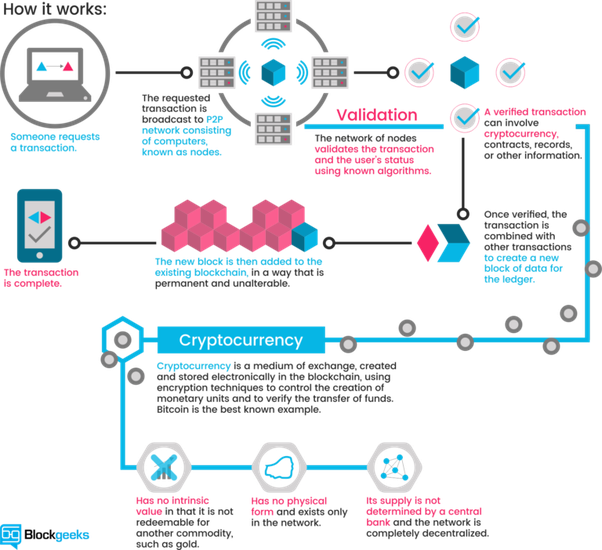
‘Game Chaingers’ Mine Blockchain Currency for UNICEF Efforts in Syria
As the Syrian Civil War draws near to its seventh devastating year with no foreseeable end in sight, global relief agencies seek to placate the suffering of the millions of wounded, hungry and displaced people and heal the bodies and spirits of a generation traumatized by warfare. One of the organizations spearheading relief efforts in Syria and among the Syrian refugee diaspora across the globe is the United Nations Children’s Fund (UNICEF), the UN’s chief agency for humanitarian assistance to mothers and children.
Operating “across 190 countries and territories” in its efforts “to save children’s lives, to defend their rights, and to help them fulfill their potential,” UNICEF is actively providing Syrian families assistance in “the life-saving areas of health, nutrition, immunization, water and sanitation, as well as education and child protection,” aiming to keep displaced Syrian children from becoming a “lost generation.” According to UNICEF:
“For the last 6 years, Syrian children have been living the biggest humanitarian crisis in the world, on such a scale that it exceeds the borders of Syria. As conflict gets bogged down, the number of people in need of life support increases dramatically. For UNICEF, nearly 8.3 million children need help in Syria but also in neighboring countries that host refugee families. An estimated 13.5 million people in Syria are in need of life-saving assistance, including 6 million children. The stagnation of the war, of a rare violence, traumatizes the population forced to live the terror, to move into the country or to take refuge elsewhere. Nearly 8 million people are displaced in Syria, and nearly 4 million are refugees in Jordan, Lebanon and Turkey. Today, almost 50% of the population is refugees or displaced.”
In the midst of this staggering humanitarian tragedy, however, UNICEF is seeking to enlist the help of an unlikely group of allies: video gamers. Earlier this month, UNICEF launched “Game Chaingers, a brilliant initiative to let gamers actively contribute to UNICEF’s Syrian relief efforts by harnessing the power of another unlikely but innovate partner for humanitarian relief, the Ethereum blockchain. Described by the organization as “the first ever blockchain fundraising,” Game Chaingers hopes to “[turn] graphics cards into a humanitarian tool” by allowing gamers and other high-end computing users to passively ‘mine’ Ethereum on their machines and directly generate Ether —the Ethereum blockchain’s native cryptocurrency—to fund UNICEF and heal the wounds of the worst humanitarian crisis of the past 20 years. So, how exactly can gamers a world away from Syria’s battle zones and refugee camps help UNICEF?
As with most of today’s cryptocurrencies, Ethereum’s blockchain network relies on a “Proof of Work” algorithm, which in the simplest terms requires that a number of users actively validate the network’s transactions into ‘blocks’ of data, a computationally-intensive process referred to in crypto parlance as ‘mining.’ In reward for all the hard work of mining, the Ethereum network doles out Ether to successful miners. Because efficient mining requires powerful computing hardware, full-time miners rely on specialized chips to process transactions, usually the same dedicated graphics processing units —GPUs— favored by gamers who demand the highest performance from their computers.

‘Miners’ assist in the validation of blockchain transactions, adding to the networks’ titular ‘blocks’ of data. Via BlockGeeks.
Game Chaingers seeks to leverage precisely this happy coincidence by giving gamers the tools to mine Ether on their own computers’ GPUs directly for UNICEF’s benefit. By drumming up “the solidarity of the PC gaming community” and providing a slick, easy-to-use interface along with community features such as gaming celebrity partnerships, funding goals, and leaderboards, Game Chaingers has provided the worldwide online gaming community with a means to help UNICEF assist those most vulnerable to war’s ravages. Ether mined via Game Chaingers during its two-month campaign is deposited directly into UNICEF’s “wallet,” a unique address on the blockchain capable of receiving and sending funds.
Conceived to operate as the “digital fuel” to power the Ethereum network and incentivize mining, Ether has increased in value since Ethereum’s launch to become a highly lucrative cryptocurrency. While Ether has historically experienced swings of volatility and boom-bust cycles like its older brother Bitcoin, each unit of Ether is currently valued at around $800 at time of press. Regardless of the sale price of Ether whenever UNICEF cashes out its wallet, however, Game Chaingers’ novel approach to fundraising means that whatever money the campaign earns was generated in a community-based, decentralized manner at only the cost of the electricity used to power participants’ computers. It’s akin—if an oversimplified and slightly inaccurate example can be forgiven—to letting the UN borrow your cookware between meals to pan nuggets from some gold-laden stream and fund global humanitarian relief with the yield.
While Ether’s value is mostly speculative as the Ethereum network hasn’t seen a mainstream “killer app” emerge yet, the past year has seen the cryptocurrency market explode in value in a pattern which many observers have suggested is indicative of a bubble in the blockchain, driven by runaway greed in Bitcoin and “FOMO”—Fear Of Missing Out—driven risky investment in the cryptocurrency and blockchain markets. Late last year, Ethereum founder and crypto wunderkind Vitalik Buterin criticized the crypto community for focusing on greed and speculation rather than developing the underlying technology for more selfless aims:
*All* crypto communities, ethereum included, should heed these words of warning. Need to differentiate between getting hundreds of billions of dollars of digital paper wealth sloshing around and actually achieving something meaningful for society. https://t.co/aNpEnBNGsA
— Vitalik Buterin (@VitalikButerin) December 27, 2017
Game Chaingers doesn’t meaningfully use the Ethereum blockchain —rather it capitalizes on the speculative worth of Ether— but it’s perhaps a step in the right direction. Humanitarian efforts across the globe including in other UN agencies are already beginning to experiment with novel uses of the blockchain built on the Ethereum network, from managing WFP food distribution to improving funds disbursement and transparency for charity monies. According to a Medium article highlighting precisely these burgeoning blockchain uses in aid efforts. “This technology has enormous potential to disrupt a broad range of political, economic and social relationships. Civil society organisations are one such area that might benefit; smart contract technology can improve the efficiency, transparency and accountability of humanitarian aid, charitable endeavours and global development projects.”
In spite of the excesses and inherent risk of the Bitcoin bubble and cryptomania stealing airtime and clicks from legitimate uses of blockchain, innovators including UNICEF are finding new ways to use these technologies for the greatest good by helping to assist the world’s most vulnerable and underprivileged people. Game Chaingers’ foray into mining-based fundraising began with the noble aim of employing gamers to help Syria’s hurting families and is already succeeding after two weeks of activity. According to independent site Etherscan which interacts with Ethereum’s network to display transactions, UNICEF’s wallet address (0x29165d4a5eE555b3B47FA7d4772f35FE41dB2769 for any crypto-savvy philanthropists willing to donate) currently contains more than 5 Ether after three weeks of Game Chainger activity, or about $4,100 at Ether’s current value; it’s a humble but promising start for a humanitarian nerd army minting expensive blockchain fuel on recreational gaming computers.







Leave A Comment